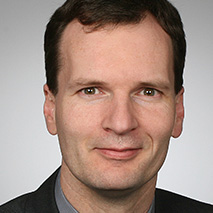Increasing flexibility in the Electricity market: Is battery storage ready for the market?
Prof. Dirk Uwe Sauer from RWTH Aachen University and Prof. Wolfgang Mauch from the Research Center for Energy Economics give their answers to this question.
PRO: Prof. Dirk Uwe Sauer
 © Prof. Dr. Dirk Uwe Sauer / RWTH Aachen
© Prof. Dr. Dirk Uwe Sauer / RWTH Aachen
From a technical point of view, battery storage is ideal for providing the power system with flexibility for any length of time. Batteries are able to provide positive and negative primary balancing capacity with almost no delay. However, the limiting factor here is power electronics. Battery storage can take on the tasks of rotating masses in conventional power stations. This in principle allows conventional power stations to be switched off if wind and photovoltaic installations provide sufficient power for powering loads. Battery technology, power electronics and communication systems are ready and able to help integrate battery storage in line with the needs of the system.
The essential question is thus whether battery storage can economically compete with the large number of alternatives available for providing flexibility in the power system. There is no simple or single answer to this question. Major drops in the costs of lithium-ion-batteries resulting from technological advances and the expansion of the production capacities for electric mobility are opening the door to markets that have revealed themselves only recently: car manufacturers are increasingly supplying the stationary market as well. This now allows electricity storage systems to be built in the megawatt range that operate economically at the current prices of primary balancing capacity. The economic viability of such storage systems will however be called into question if, for example, prices of primary balancing capacity fall due to an oversupply of electricity or if battery systems are built at even lower prices. Until now, applications that run for more than one hour at full load do not break even. In future, so-called “double benefit systems” whose primary use justifies the investment made and which additionally provide services for the electricity market will have a major impact on the electricity market. From an economic point of view, any regulatory barrier that still exists should be eliminated in order to enable the potential of these systems.
Prof. Dirk Uwe Sauer is a professor of ‘Electrochemical Energy Conversion and Storage Systems’ at the ‘Institute for Power Electronics and Electrical Drives’ (ISEA) at RWTH Aachen University.
AGAINST: Prof. Wolfgang Mauch
 © Prof. Dr.-Ing. Wolfgang Mauch, Forschungsstelle für Energiewirtschaft e.V.
© Prof. Dr.-Ing. Wolfgang Mauch, Forschungsstelle für Energiewirtschaft e.V.
This question can certainly not be answered with an unequivocal ‘yes’. We can consider a technology to be ready for market entry if services can be provided in a better manner and at lower prices than before. This also applies to battery storage.
This may for example apply to owners of solar installations who use battery storage to optimise their energy use within their electricity tariffs and who see an added value in increased self-sufficiency. Industrial companies both with and without autogeneration installations are also becoming increasingly interested in the use of battery storage for economic reasons. However, we are not seeing a rise in demand for battery storage on the whole-sale markets for technical and economic reasons. The primary balancing capacity market is an exception to this, but it can absorb capacities only to a limited extent. It is fair to say that the markets are not yet ready for battery storage as necessary price signals are just no there.
In the long run, however, battery storage will take on a more important role within the energy system. The reason for this is the transformation of the transportation system which will require high energy and power density batteries. Until now, such batteries have been manufactured outside of Europe, particularly in Asia and the US. It is paramount to build knowledge and expertise in this field in Germany and throughout Europe if we want to ensure that value creation in the automotive industry remains on our shores. This in turn will only be possible if we build up our own battery production capacities.
The global expansion of production capacities will lead current production quantities to multiply. As a result, there will be a major decline in prices which will lead to a wider range of application for batteries in the electricity sector. However, batteries will not become the future cure-all for the energy transition in the electricity sector, but they can certainly become part of the solution.
Prof Wolfgang Mauch is the managing director of Forschungsstelle für Energiewirtschaft e.V. (Research Center for Energy Economics)

